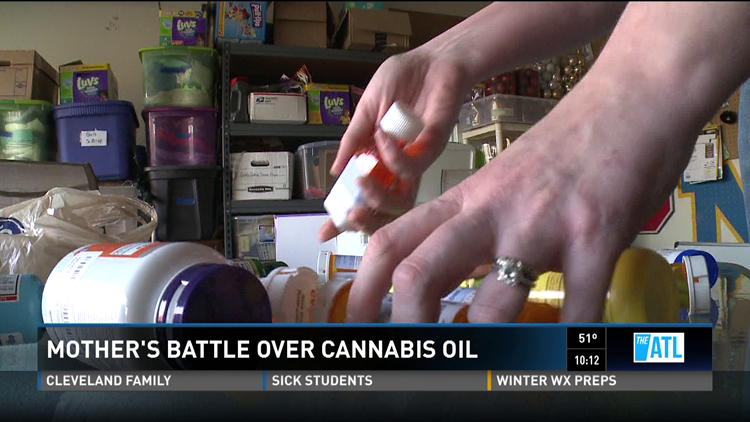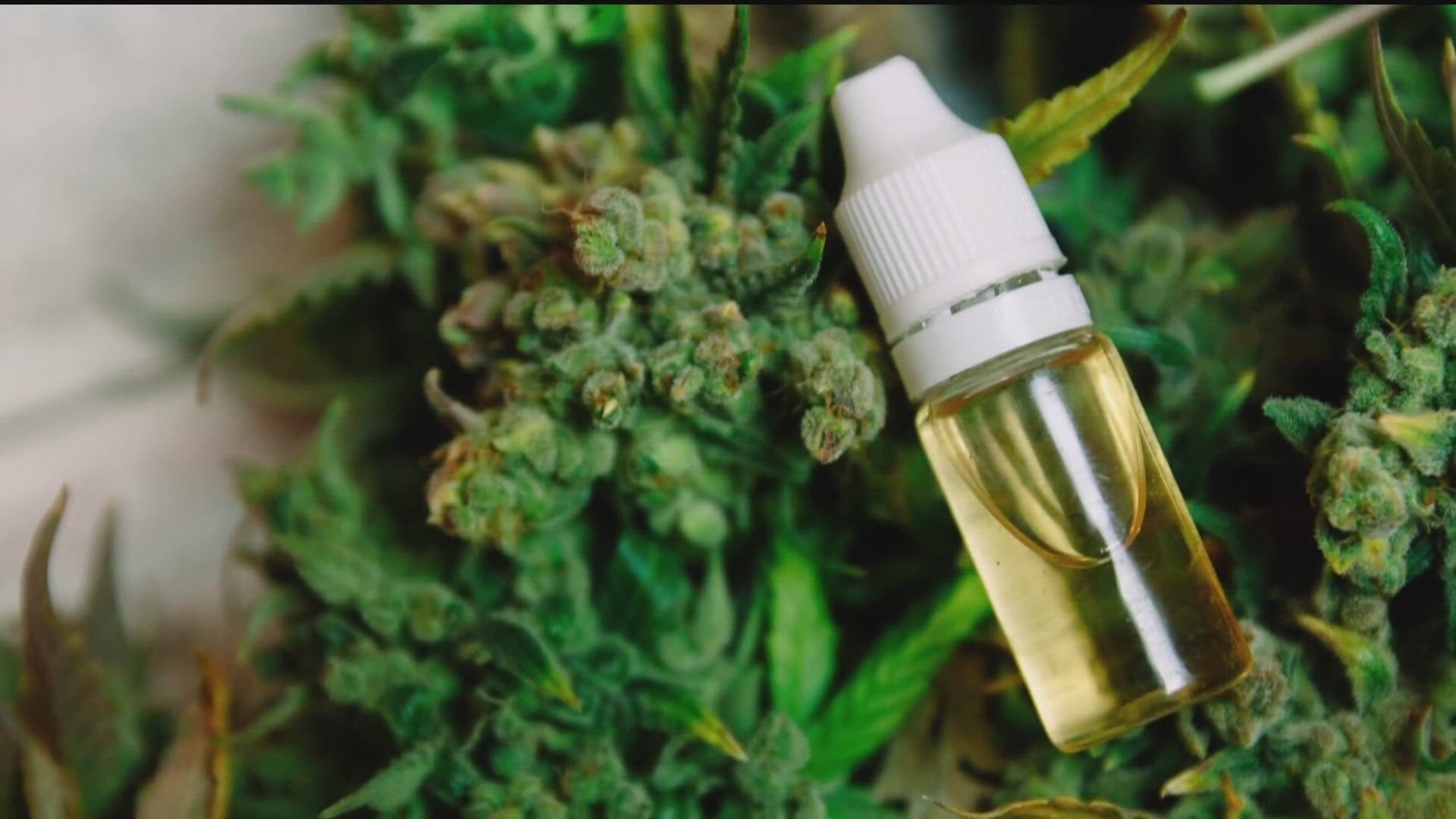ATLANTA -- Medical Marijuana continues to dominate the conversation at the Gold Dome this legislative session - and the debate is sharply divided.
Friday night, one local woman told 11Alive exclusively, she had to quit her job over the fight to get her son the treatment he needs.
She said it was an easy decision - of course she chose her son over her job.
Her argument is that it's not a decision she should have to make.
"Right now he runs, he walks, he talks, he does special needs cheer leading, he's allowed to have a childhood," Katie McKoy said. "The tumors and the mitochondrial disease, they threaten that."
She knows things could change with her son Mattie in an instant.
"It takes everything away from him," she said. "From his ability to breathe to his ability to walk and talk - all of it."
He suffers from a condition where tumors grow on his nerve endings. He takes more than a dozen medications a day to manage it.
"It's heartbreaking," she said. "I don't even know how to put it into words, honestly."
The words were easier to come by when her job told her she couldn't talk about using medical cannabis oil: "I quit."
"I was told I could not publicly advocate for cannabis oil and be on their payroll because it would be considered a liability," she said.
Walking away from her job was easy. It's changing the hearts and minds of lawmakers and law enforcement that's difficult, she said.
"If this were their child or they were in our position, they would be doing the same things and I guarantee some of them would take the law in to their own hands like many of our families have," McKoy said.
The Sheriffs Association, Prosecutors Association, Baptist ministers, and countless lawmakers have said they do not want cannabis oil cultivation in Georgia.
McKoy said she'll get it anyway.
"I would absolutely do whatever I need to do to help my child," she said. "And if that meant breaking the law, then I would do it. And I would dare them to stand in my way.
She will be at the Gold Dome soon delivering a petition of more than 10,000 people.
![Exclusive: Details of new medical marijuana bill released only on 11Alive [oembed : 80324336] [oembed : 80324336] [oembed : 80324336] [oembed : 80324336]](/Portals/_default/Skins/PrestoLegacy/CommonCss/images/smartembed.png)



